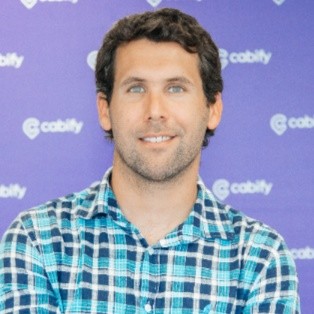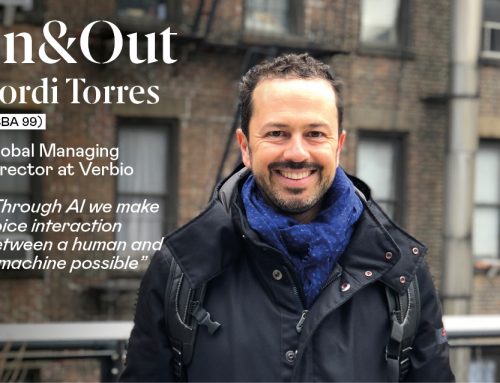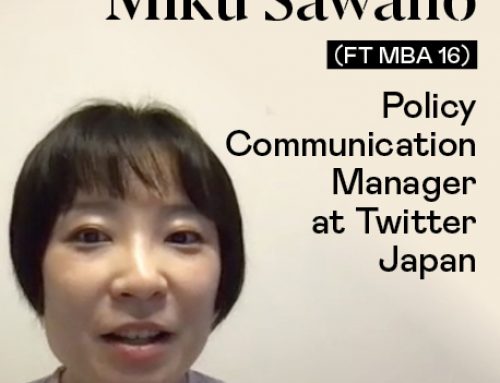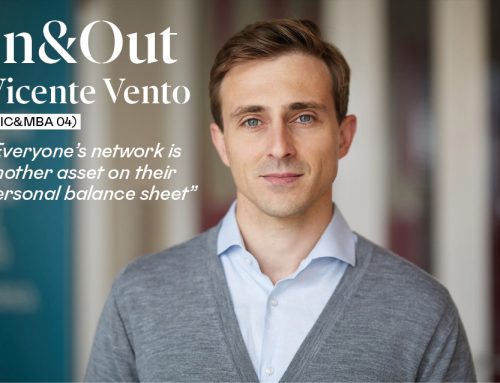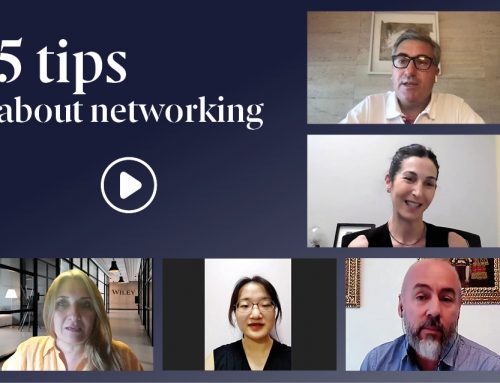Gerardo Reategui (MBA 11), Head of Innovation at Rimac Seguros
As Head of Innovation at Rimac Seguros, Gerardo Reategui supports the company in achieving its objectives through human-centered innovation, creating new ventures from scratch, transforming the business models, inspiring the business leaders, and exploring new ways to protect more families.
-What are the biggest challenges for the sector today?
On the one hand, growth in insurance penetration, especially in the emerging middle class, since Latin America has a premium penetration rate of only 2.9%. On the other hand, advance in the digitalization of our products and services to have connected users and to give them a better experience both at the transactional and non-transactional level.
-You have worked in Latin America and Europe. What does international experience mean to you?
It is invaluable. Working in different countries gives you a lot of mental openness which improves critical thinking. It teaches you resilience because when you get to a new place you have to start from scratch. It allows you to better understand the world’s problems and develop your soft skills in many aspects. The challenges you face also help you to know yourself better and understand your potential. But best of all, you know many valuable people.
-You have been CEO in Peru and Head of Operations at Cabify for over 6 years. What are the skills needed to manage disruptive business models?
You need to have a lot of determination, resilience, tolerance for uncertainty, resolving capacity and execution ability.
-What has been the most rewarding part of this experience?
On the one hand, to impact millions of people and change their consumption behavior in the use of a basic need such as urban transportation. And on the other hand, to contribute to sustainability by making cities a better place to live as more people leave their private vehicles at home and move around in a more sustainable way.
-And the most difficult?
Finding that ideal product that can improve the experience of both the passenger and the driver exponentially and then creating a scalable growth model. When you develop digital native solutions, you are a bit biased towards technology and tend to lose sight of the user, because there is a lot of pressure and the team is very small. But when you find the balance between user and technology centricity you start to see the light.
-How would you define your management style? What qualities do you value the most in your team?
I aspire to be a good transformational leader someday. In order to make rapid progress in the technological world today, flat organizations are very important. People have to feel passionate about the products they develop in order to be able to have autonomy, ownership and accountability. Otherwise it is impossible to achieve results. To work this way I believe that leaders have to know how to delegate, empower, motivate, support and inspire. Having tolerance for mistakes is key but also is acting fast when things go wrong and it becomes necessary to make changes.
-You also teach at Universidad del Pacífico. What does teaching bring to your professional career?
It forces me to stay updated, allows me to be close to young people and gives me the satisfaction of contributing to society through education.
-What advice would you give to alumni who are thinking about starting an international career?
Don’t think it too much and do it now. Soft skills, flexibility, openness and willingness to learn are key. I have met people who had little flexibility to move geographically or learn languages and missed the opportunity to develop interesting international careers. When I joined Bayer in 2002 in Europe, I found many Latin American trainees starting their international career in the company just like me and what we all had in common was a lot of flexibility, openness and adaptability.
-How has Esade helped you personally and professionally?
On the one hand, the experience of doing the MBA in Esade greatly enriched my knowledge of fundamentals, strategy and management tools. And on the other hand, I was exposed to disruptive business models, entrepreneurship and various business opportunities that finally prompted me to join Cabify when it was just a PowerPoint and bring it to Latin America.

